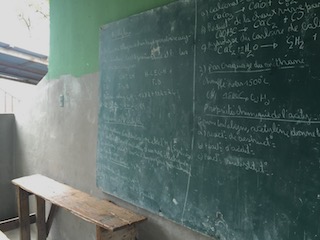Home » Course Layouts » Free Course Layout Udemy
Caribbean Creole languages result from language contact via colonization and the slave trade.
0
English
English [CC]
FREE
- Learn basic syntax that can apply to any language.
- Learn what is a programming language and the basic concepts for beginners.
- Understand what is Javascript in it's truest form.
- Know the basic syntax of Javascript.
- Know some hidden quirks in Javascript.
Description
In this course we explore the history of Creole languages from cognitive, historical and comparative perspectives. We evaluate popular theories about “Creole genesis” and the role of language acquisition. Then we explore the non-linguistic aspects of Creole formation, using sources from literature, religion and music. We also look into issues of Caribbean identities as we examine Creole speakers’ and others’ beliefs and attitudes toward their cultures. We also make comparisons with relevant aspects of African-American culture in the U.S.
Course content
- Do “Pidgins” exist? Do Creole Languages Come from Pidgins? Unlimited
- How Much Variation in Space and in time through the history of Haitian Creole ? Unlimited
- On “Kreyolofoni” : Why do we Still use the Label “Creole” to refer to “Creole languages”? Unlimited
- Post-colonial discourses of power & identity; the making of socio-economic & cultural hierarchies Unlimited
- Language and discourses of power in the making of “authentic” identities in post-colonial societies Unlimited
- Language, culture, identity and “authenticity” in post-colonial communities Unlimited
- Feedback to students who led class discussion Unlimited
- Against Creole Exceptionalism, Part 1: Creole languages are perfectly normal languages Unlimited
- Against Creole Exceptionalism, Part 2: Creole formation is normal language change Unlimited
- Against Creole Exceptionalism, Part 3: Creole formation is language acquisition plus social factors Unlimited
- “Birth certificates” of languages created via migration & population contact—Kreyòl, English… Unlimited
- A brief & partial history of anti-Creole myths at the core of imperialism—linguistic & otherwise Unlimited
- Guest Lecture (2022): Unmaking and Remaking Community (part 1) Unlimited
- Guest Lecture (2022): Unmaking and Remaking Community (part 2) Unlimited
N.A
- 5 stars0
- 4 stars0
- 3 stars0
- 2 stars0
- 1 stars0
No Reviews found for this course.
Instructor
Massachusetts Institute of Technology
5
5
1
1925
1520
Explore Free Courses
Access valuable knowledge without any cost.
{"title":"","show_title":"0","post_type":"course","taxonomy":"course-cat","term":"engineering-skills,health-and-safety","post_ids":"","course_style":"free","featured_style":"course6","masonry":"","grid_columns":"clear4 col-md-3","column_width":"268","gutter":"30","grid_number":"4","infinite":"","pagination":"","grid_excerpt_length":"20","grid_link":"1","grid_search":"0","course_type":"","css_class":"","container_css":"","custom_css":""}










